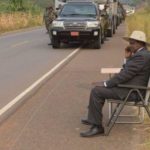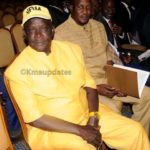|
Bugisu Cooperative Union (BCU) is Uganda’s only surviving cooperative society. It’s an establishment that has existed during and after colonial times. Arabica coffee was introduced in Bugisu in 1912 and it has remained the central economic activity of the Bagisu – yesterday, today and tomorrow. The thought to form a cooperative union was precipitated by European and Asian private traders who benefited from Bugisu coffee more than the Bagisu themselves. In the 1920s, European and Asian private traders were the coffee buyers. They created what was called “the buying ring” in 1927 whose purpose was “to eliminate wasteful competition” – literally translated to mean forcing down the Bugisu coffee prices. The predatory nature of this buying ring was such that they had to buy coffee right from the grassroots at very low prices. This agitated the Bagisu who were getting a raw deal from their coffee. Bugisu Coffee Scheme. However, the powers of BCS was hijacked by central administration and three trading companies – sharing and organizing coffee processing, marketing and regulating coffee price. A. Baumann & Company took the leading role. In 1933, because of pressure, BCS was given exclusive buying rights – but it was operated by a European Manager hired by a District Commissioner. Although the BCS was for Bagisu, more lucrative positions were taken by Europeans, Asians and Baganda. There was a Board of Director (BOD) that comprised five members – with two Bagisu representatives. Foreign Interference Between 1944 and 1949, after bitter complaints by the Bagisu farmers about the structure of BCMC, two more Bagisu representatives from were appointed to serve as a channel to farmers and to agitate for the rights of farmers. But the BCMC remained in full control. The Bagisu conviction that they were being grossly cheated by the company became deeply rooted. Taking Advantage of the Cooperative Law In the same year, the first two primary societies were formed and started operating. By 1949, 24 societies were formed. In 1950, motivated by the strength of the 24 primary societies, the Bagisu refused to renew the contract with BCMC – and instead contracted BCS resume the role of collecting coffee. BCU Formation BCU Leadership BCU Influence Coffee Marketing Government Backlash The central government encouraged the formation of a rival group Bugisu Coffee Marketing Association (BCMA) and supported mercurial S.G.Muduku, the then Member of Parliament, to become the association president. Muduku was so politically fluid that in1961, he was elected Member of Parliament on UPC ticket and in a few months (1962), he was a member of the ruling Democratic Party. BCU Non-Political Despite the fact the political advantage that BCU had, it chose not to go into politics. Despite the fact that BCU leaders were politicians – or closely linked to key district political figures, they chose to serve farmers. Despite the fact that BCU leaders came from different political parties (UPC and DP), their cause for farmers were undivided. It should be noted that BCU did not correlate with party cleavages. Samson Kitutu, the father figure of the cooperative movement was hostile to political parties. BCU had DP presidents when DP regime was in place but this did not affect the sovereignty of union politically. In the election of BCU leaders, candidates were stopped from using party symbols. They used their membership cards.
|
FLASHBACK: Bugisu Cooperative Union through the times: The idea was mooted 1931








